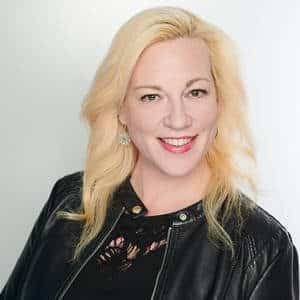by Sarah LeMoine , Senior Director, Professional Development & Workforce Innovations
I have an agenda; it’s a long-standing agenda; it is an agenda of kindness.
My family often refers to me as Tigger. I get excited (ok ridiculously bouncy excited and a little giggly, to be honest) about what could be. I look for and expect good things. As a child, my grandmother first taught and modeled for me how to find joy in small things and moments. Today, my daughter shares that trait and the joy it brings us both is remarkable to me. I’ve become quite adept at finding joy in small things and moments, in the everyday acts of kindness, and in challenging circumstances. These skills are buoyed by the true privilege of contributing to work with a mission that is also my own—to support the early childhood workforce themselves, and in the critical relationships they have and role they play in supporting young children and their families. I do mission-driven work with rock-star talented, incredibly smart and insightful, storybook kind and compassionate colleagues who wonder about and act on what could be with me…how could I not feel bouncy and deeply grateful? I am humbled each day to advance a shared agenda of kindness.
This past year certainly pushed the limits of my “Tiggerness” and tested my abilities to see the positives. Knowing I am not alone in those feelings has been essential to me. And in some moments, knowing I wasn’t alone didn’t dispel the loneliness. Despite the upheavals and tragedies experienced this year and continuing, I’ve found more than a handful of joyful moments. I’ve recognized unparalleled opportunities to push critical advancements forward for our youngest children and their families, especially for Black and brown families—moments to forward personal and professional mission, moments to do what is required and needed and right, to advance an anti-racist future, a better future.
Just over a year and a half ago, the Professional Innovations team at ZERO TO THREE provided professional development and technical assistance predominantly in-person. Yep. We all—the whole world—faced decisions about if and how to pivot in a primarily virtual world. The areas of mental health, trauma, behaviors that challenge, the importance of reflective practice and of positive, nurturing interactions…these areas are what we know, what we believe in, and what we provide professional development on. Arguably, these areas became even more important 18 months ago. Eighteen months—it’s amazing how much growth and change happens in the first 18 months of life! And how much has indeed changed in all our lives in the last 18 months.
We committed to ensuring any pivot to virtual for our offerings had to guarantee the evidence-based and promising practices outcomes our programs provide. We were not enamored with quick shifts to deliver in-person learning experiences via video; the too frequently experienced type that treat virtual options as a recording of an in-person experience. We certainly already had experience in designing virtual professional development. And we knew we could and needed to do things differently. We increased our virtual expertise and the infrastructure underpinning it.
Fortunately, we work in innovations; we are not strangers to taking risks and pushing envelopes, and we always see room for change and improvement. The team worked diligently to redesign the delivery of programs using synchronous and asynchronous virtual methods in new ways and combinations that don’t require learners to only commit to didactic seat-time. In chunks and in series and packages that work well in the virtual world. We tested and piloted. We pushed past assumptions that virtual meant “not as good” in ability to offer meaningful learning experiences. The team did this work with the care and kindness required to address sensitive topics which require and address vulnerabilities. We questioned and wondered and crafted anew what needed to be different. We doubled-down on the principles that have been and continue to be a foundation of our professional development work and our way of working— The Irving Harris Foundation’s Diversity-Informed Tenets for Work with Infants, Children & Families. We know that our field, our nation, and our world have systems and institutions that produce racially disparate outcomes, regardless of the intentions of the people who work within them. Realizing our collective hopes and dreams for each and every young child requires us to be anti-racist. We use the Tenets as one essential tool to ensure equity and inclusion are always explicit in our work. We must—and we do—embrace, integrate, and focus on concepts and concrete, actionable steps to advance equity.
We continue to pilot now. In July, we launched our first ZERO TO THREE Critical Competencies for Infant-Toddler Educators™ Micro-Training of Trainers (Micro-ToT). Our faculty are guiding a cohort of 15 trainers through an intensive five-part virtual training. The Micro-ToTs offer a unique, small cohort opportunity to become a badged trainer in one, two, or all three areas of the Critical Competencies (Area 1: Supporting Social-Emotional Development; Area 2: Supporting Cognitive Development; and Area 3: Supporting Language & Literacy Development). Badged trainers are equipped with a wealth of resources and gain ZERO TO THREE membership with ongoing support and networking options. All the Critical Competencies’ offerings (learning options for educators, trainers, coaches, faculty, and more) are built on diversity, inclusion, and equity principles; feature considerations for multi-language learners and children facing multiple risk factors; and align with professional criteria, standards, and observation tools. We’ve seen the Critical Competencies programs build significant capacity at all levels, positively transforming practice, and supporting intentionality in approach to everyday interactions—those important small moments, with infants and toddlers. The first 18 months, the first few years of life, provide the foundations for who children grow up to be, what they will contribute to society, and the kinds of relationships they will develop throughout their lifetime.
What can we do together in the next 18 months? I believe we can and will do more and better—together, with expanded access and community made possible in large part through virtual connections. I hope you join us in one of our professional development programs, attend our now virtual Annual Conference, and feel the power and possibilities of our shared community. I hope you join our shared agenda of kindness, and that you extend that agenda to include kindness to yourself. We are capable of so much goodness in our work and relationships. As ZERO TO THREE’s founding member and former board president Dr. Jeree Pawl, said, “how we are is as important as what we do.” Let’s give ourselves grace, as we give grace to others. Let’s hold ourselves and others accountable for being better and doing better, for our babies and toddlers now and for all our futures.
More often than not, I’m still bouncing with excitement about what we have done and will do together. I’m rooting for us, ready to do the hard work with and for you, to learn and grow with you. We are honored to join with you in advancing honest, candid, and productive conversations and concrete actions to address racism and inequality in early childhood services and systems. I’m expecting good things and I know we are making them happen, together.




